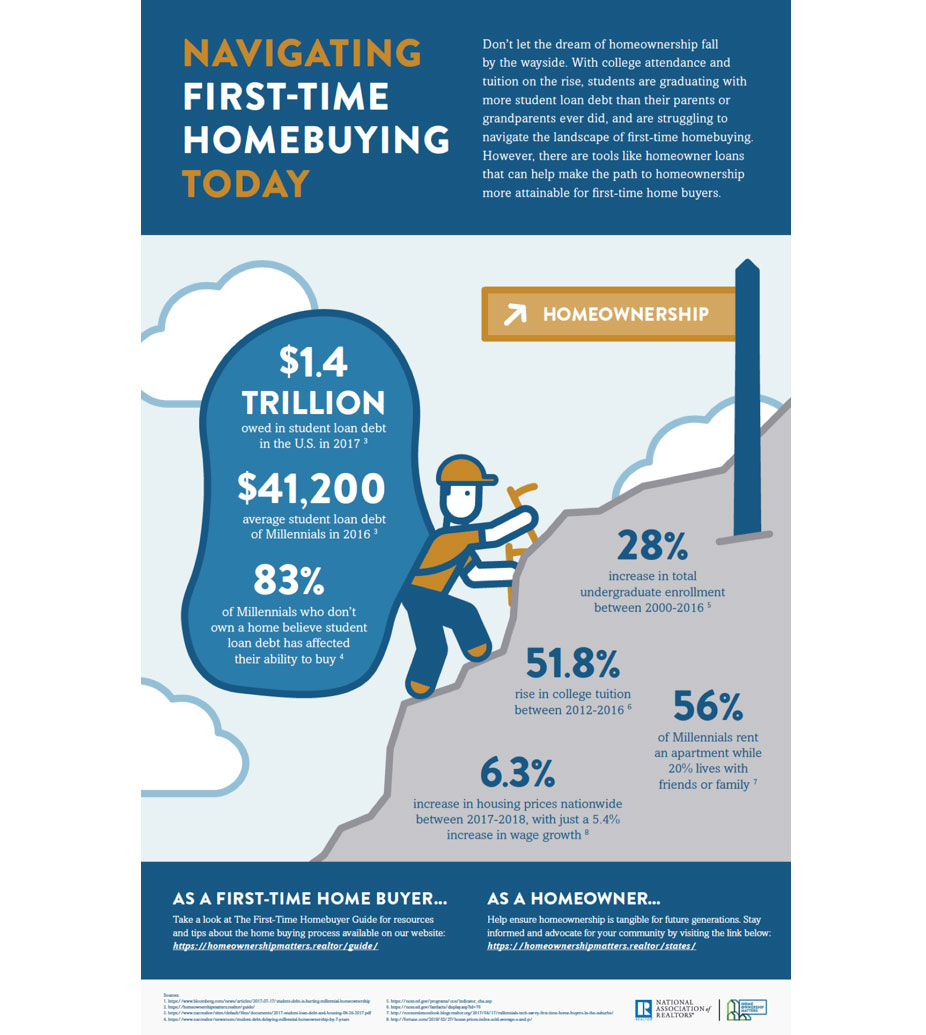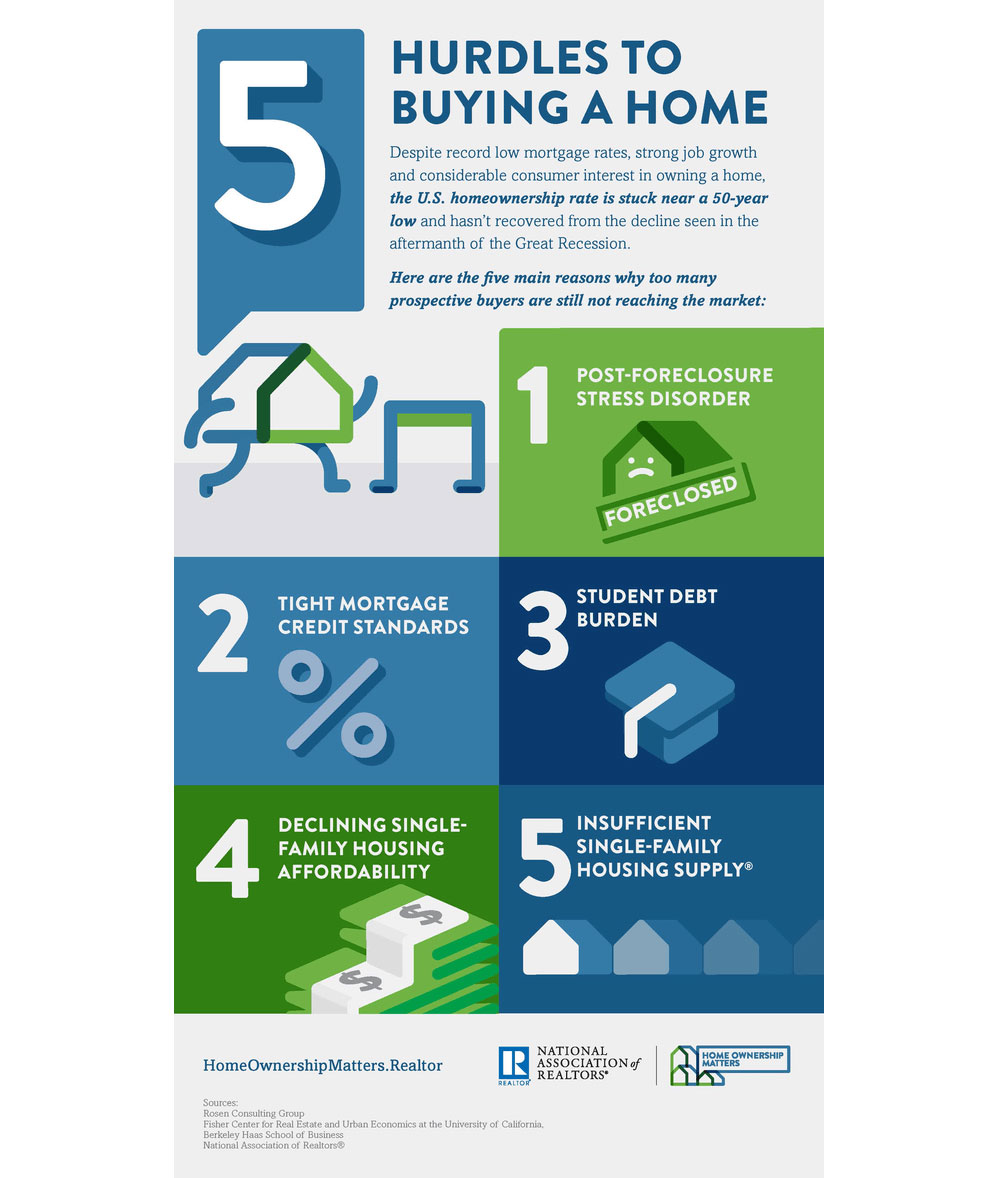NEW MEMBERS RESOURCES
Your Guide To Succeed
I could only achieve success in my life through self-discipline, and I applied it until my wish and my will became one. – Nikola Tesla
Jump to Section
5 Survival Tips For New Agents
5 Mistakes New Agents Make
5 Things New Agents Must Do
Helpful Infographics from NAR

1. Work under an experienced broker
Where you choose to work as a brand-new agent matters. Many flashy teams will be looking to get you into their organizations. Before signing on, find out how many deals the lead broker has closed, the number of years (and ups and downs) they’ve weathered, and how much mentoring and continued on-the-job training the team will be able to provide.
Every real estate deal presents different challenges. You need someone you can go to when the inevitable odd situation arises, as it always does. You need someone to read your offers so you can make them as clear, concise, and successful as possible, not to mention legally correct.
Be cautious about joining groups that have doubled or tripled in size too quickly. They might not have enough people to handle the mentoring that new agents need. Team growth should happen gradually, not exponentially.
Do your research. It’s so important to align yourself with a broker who will support you and help you learn how to do things the right way from the start. Some brokers have sold only a few homes and then gone on to start their own shops after just a couple of years in the business.
Trending
Know who is teaching you, and make sure they have experience and real successes of their own.
2. Follow the recipe
Many agents think they can be self-taught, so they make things up as they go. They try what feels right when they get to the gray areas of buying and selling. But when we see those agents on the other side of deals, we know they’re running wild, and we just hope the deals and commissions won’t fall through the cracks due to inexperience. Later, when their names come up on other offers down the line, our agents will be less likely to choose those offers due to the hassle of working with them.
At our brokerage, I’ve taken a step back from doing listings so my time can be spent mentoring agents and sharing our recipe for success. The agents who follow the recipe do very, very well.
If you’re cooking something complicated and don’t follow the recipe, it usually doesn’t come out right. After you get some experience, you can jazz it up.
Start with basic vanilla cake. Later you can make strawberry cake. It’s the same with real estate: After a few years, sure, you can go off-recipe, but you have to get the basics down first.
3. Study your market
Every day you spend as a new agent should include some serious time studying your market and the neighborhoods in your area. You need to know exactly what’s selling in your market, including price points for various areas.
Study the MLS every day. Even if you’ve lived in a market for 30 years, you’ll need to learn it from a whole new perspective — a business perspective — a real estate perspective, which is a very different thing. We recommend spending an hour or two a day studying the MLS. Rather than scrolling Instagram every evening, dig into your market.
Your brokerage pays for the MLS: Use its training tools and how-to videos. It’s all in there. But you have to put in the time. There’s not a class for that. You just have to do it. Nothing in life that’s worth it is ever going to be easy.
4. Keep your opinions to yourself
Your role as an agent, especially when working with buyers, is to advise and guide based on facts, not your personal preferences, sense of style or even gut reactions. We encourage our agents to bring an unbiased view into real estate transactions. You must know your market, the property in question, the comps and much more to evaluate a home.
Your favorite home style might be a classic Florida ranch, but that’s no reason to steer clients toward that type of home. Your client might fall in love with something you hate, say a two-story Mediterranean style or a home with bright yellow carpeting, but you should never discourage your client from those features based on your preferences. You won’t be living there, after all, or making the mortgage payment. Your clients will.
5. Do the right thing
Real estate agents, particularly those who end up working without mentorship or support, can fall into the trap of bending the rules of right and wrong when no one seems to be looking. We’ve seen all sorts of situations in which agents who feel entitled to commissions make bad decisions or take legal liberties to either move a deal along or to make more money.
Don’t do it. Don’t lie. Don’t scheme. Don’t cheat. Be honest. Don’t initial or sign for buyer or seller and think it will not be a big deal. (That’s always a big deal — and it never works out well.) Sometimes agents might ask sellers to write checks out to them instead of the brokerage, or they’ll collect rent money that goes to the brokerage or take out a percentage they feel entitled to in the deal.
We ask our agents to do what you say you’re going to do. Follow policies and your agreement. Even if you have to leave a brokerage, you can do it on the up and up. If you’re going to leave, talk with your broker about the plan. There’s always a solution and an exit strategy.
If you ever wonder if you should be doing something, don’t do it. There are going to be others who might not like it, but that’s not your problem. When you always do the right thing as an agent, you’ll never have to worry.

1. They Have No System for Their Business
No one tells you what to do when you first get into real estate! It can be hard to build a business without a system for real estate lead generation. Agents should implement a proven system that helps them understand exactly what they must do each day to create a pipeline of quality leads. It’s also important to set goals and track progress along the way!
2. They Are Transaction-Oriented
Most people can’t even remember their real estate agent’s name a year or two after a sale! That’s because many agents are hyper-focused on the transaction; they fail to stay in touch with clients and, as a result, lose out on referral opportunities. Instead, new agents should commit to keeping in touch through mailings, calls and even small appreciation gifts. Be there for clients before, during and after a transaction, and become their go-to real estate agent for friends and family.
3. They Are Available 24/7
As a new agent, you want to be there for your clients whenever you can, even if it isn’t convenient for you. However, over time, this approach will lower productivity and lead to burnout and fatigue. New agents must implement a strong real estate time management plan at the start to get the most out of each day, while maintaining an essential work-life balance.
4. They Live Paycheck-to-Paycheck
Getting your first commission check is exciting! It’s tempting to spend it all right away, but before you splurge on a new car or shopping spree, you have to make sure you have all your financial bases covered. Because real estate agents do not receive a set paycheck, agents must learn how to keep business and personal expenses separate, and how to divide each commission check to pay themselves first while also covering business expenses, taxes and other costs.
5. They Look Online for Leads
When building a database from scratch, buying online leads seems like an easy way to get clients quickly. However, online leads are more like soft inquiries, and the chances of them becoming lifelong clients are very low. Instead, new agents should cultivate a database through their current sphere of influence—not strangers on the internet—to build relationships and generate top-quality leads.
If you’re a new agent (or even someone who’s been in the business for years) and you find yourself making a few of these mistakes, it’s easy to get on the right track! The Pathway to Mastery®—Essentials is a real estate training program from Buffini & Company that teaches agents at all stages in their career how to build a successful business that will thrive for years to come. Register to take this course online today!

1. It’s not what you say, it’s how you say it — so practice
Delivery of information, and the tone in which it’s delivered, can send your transaction down the right road to closing or the long, windy back road to termination. Think before you speak, and listen before you talk.
Take time to practice a delivery that will garner engagement and resolution as opposed to jumping on the bull for a long bucking ride.
2. Check your curb appeal
First impressions are important to our clients and business partners. Do you look and sound like you just rolled out of bed? I sure hope not.
I’ve come across many agents at showings, closings, inspections and open houses who literally look fresh from a long leisurely nap or a good hearty work out at the gym. Please, please, please know your audience, and dress accordingly.
3. Master your handshake
This might seem like a no-brainer, but your handshake says a lot about you. Is it a dead fish or the bone crusher? Practice handshaking.
I raised my children to know how to make eye contact and shake hands. We still practice. I am launching them into the world one at a time, and interpersonal skills remain important across all social settings.
I have a habit of paying close attention to the way clients shake hands — it gives me an almost immediate read into their personality, and I adjust myself to navigate.
4. Respond promptly to emails, text messages and telephone calls
I check messages all day — at red lights, standing in lines, waiting at the drive thru. Acknowledgement and follow-up are essential to being a professional. Four day’s response time to an email, phone call or text is not acceptable or productive.
5. Perfect a system that works for you and your clients, and stick to it
Losing track of rogue clients, deadlines and closings will not bring you new business or a great reputation — it will bring you lawyers and the unwanted attention of the real estate commission.
With all of the apps, widgets, systems and programs we have to choose from, you’d think we’d all be at the top of our game. I say TMI. Pick a lane, pick a process — and own it. Revisit and re-evaluate quarterly to see where improvements can be made with your marketing, communication, calendaring, etc.
This might seem pretty elementary, but I wouldn’t be writing this article if it didn’t need to be mentioned. With the new year approaching and resolutions to be made, let’s all do our part to make this industry great again.
We can’t control inventory, sales or interest rates, but we sure can discipline ourselves to maintain a professional standard that we can be proud of.
Helpful Infographics from NAR

FAIR HOUSING

Housing supply & affordability

First time homebuying in today's market

